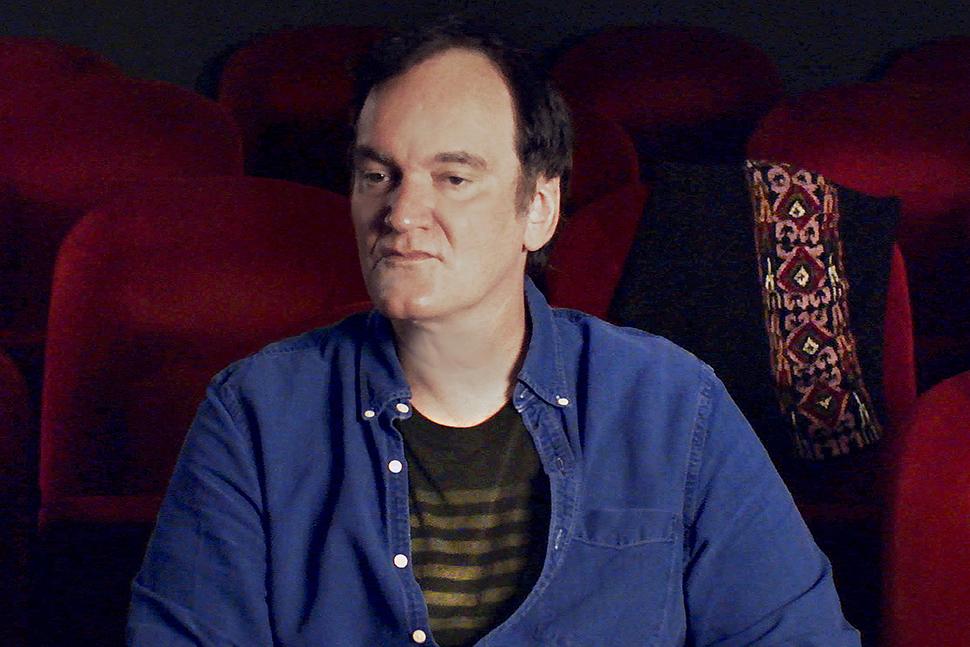Django & Django – Sergio Corbucci Unchained
Venezia 78
Out of Competition

We all know Rick Dalton went to Italy to revive his acting career by doing a Western that had recently proved a breakout hit for Clint Eastwood. Dalton finds himself at dinner with his director Sergio Corbucci and under the mistaken impression that he is Sergio Leone begins to sing the praises of Fistful of Dollars. He’s corrected, but maybe Rick has seen other Italian westerns. And in fact Rick watched one coming over on the plane called Navajo Joe starring Burt Reynolds in a wig that made him look like Natalie Wood. His conclusion: ‘It was a piece of shit!’ Sergio lets him finish his story before telling him, ‘Actually, that one I directed’. The anecdote is told by Quentin Tarantino at the start of Luca Rea’s new documentary Django & Django – Sergio Corbucci Unchained. It comes with an animated reenactment and some B-Roll of Rick Dalton yawning between takes to embroider the conceit.
It’s a witty start to a film which takes a broad look at the man known sometimes as the other Sergio. Forever in Leone’s shadow, Corbucci however made a series of distinctive and critically lauded Spaghetti Westerns, in particular the first Django, starring Franco Nero as a coffin- dragging avenger, The Big Silence with the unlikely figure of a mute Jean Louis Tringinant going up against Klaus Kinski’s villain and his Mexican Revolution trilogy featuring The Mercenary, Compañeros and What Am I Doing in the Middle of the Revolution?. While Ruggero Deodato and Franco Nero give eyewitness accounts of working with the man himself, Tarantino has the lion’s share of the film, and in some ways the film is an insight into the book he claimed to be writing before he was inspired to make Django Unchained, itself a highly skilled pastiche of a Corbucci western.
For Tarantino, all of Corbucci’s westerns are rooted in a contempt for the fascism which marked Corbucci’s childhood and dominated Italian culture as he grew up. There’s even a slightly wistful story about Corbucci as a member of a fascist youth choir being within spitting distance of Il Duce and the Fuhrer, during the latter’s visit to Rome. In this reading the villains of his films are the fascists and the townsfolk are those who stood by, worthy of even more contempt.
Corbucci, like Leone, started work as a critic and odds job man, graduating from second unit direction to the big chair where they both started off directing Peplums, oily classical sword and sandal films usually starring the likes of Steve Reeves. Leone went on to create the apotheosis of the Spaghetti Westerns with his dollars trilogy, before heading for the States, Corbucci stayed rooted in Europe and Italy. His films were more openly sadistic and violent than Leone’s. There were fewer duels but plenty of massacres and shoot outs. To hear Deodati tell it, he learned cruelty from Corbucci. And that’s Ruggero Deodati who went on to direct Cannibal Holocaust. As Leone headed off into an epic sunset, Corbucci introduced mud and blood and a more overt political subtext, which actually much of the time becomes text as in his Zapata westerns. Leone would actually show that the traffic of influence went in both directions when he made Fistful of Dynamite, essentially his take on a Corbucci western.
This is a relatively narrow focus on Corbucci and as great as it is to hear Tarantino talk about someone he obviously esteems, it gives only a partial portrait of the Italian director. Have there been any other filmmakers who admire him other than Deodato and Tarantino? Any other colleagues and actors who worked with him along with Franco Nero? Rather than Corbucci unchained, it’s more like Corbucci gift wrapped by a director whose love can be suffocating.
Country: Italy
Language: English, Italian
Runtime: 97′
Directed by: Luca Rea
Written by: Steve Della Casa, Luca Rea
Production: Nicomax Cinematografica (Nicoletta Ercole, Nicola Marzano), R&C Produzioni, MarguttaStudios, Greater Fool Media, Istituto Luce Cinecittà
Cinematographer: Andrea Arnone
Editor: Stuart Mabey
On-line Editor: Jacopo Stelluti
Production Designer: Stuart Mabey
Research: Romilda Boffano
Cast: Quentin Tarantino, Franco Nero, Ruggiero Deodato
















